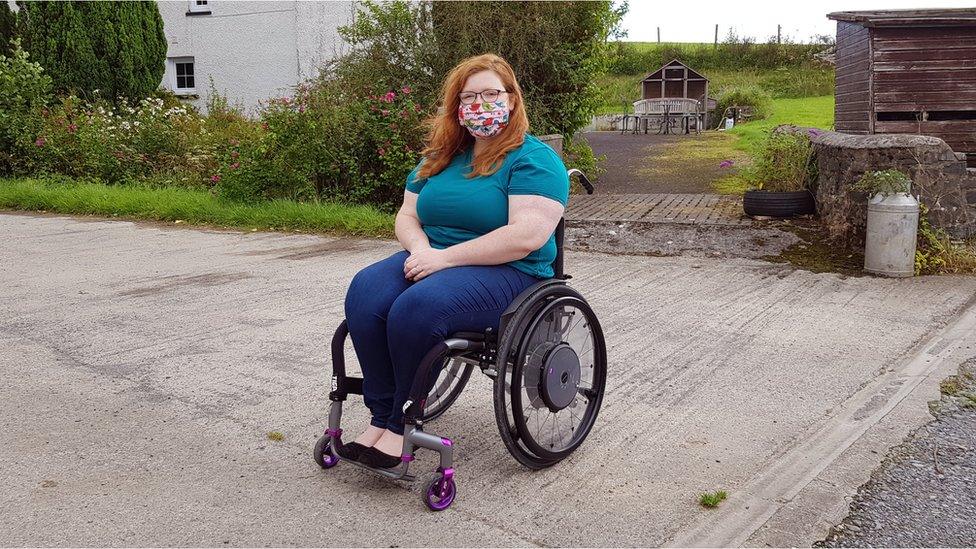Coronavirus: 'Bosses should be more open-minded about hiring disabled people'
- Published
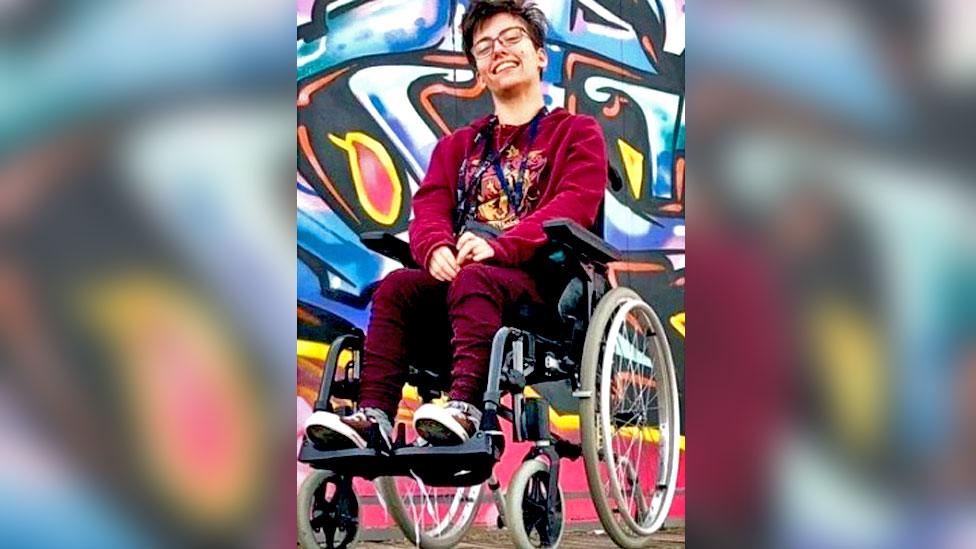
Emma Dobson, 23, says it is "soul destroying" that she hasn't got beyond a first interview yet.
She has cerebral palsy and has been job-hunting since completing her Masters degree at Aston University this summer. But despite making about 40 applications since July, she has had little success.
"Because I live by myself and like lots of people, I haven't done much socialising recently... I'm desperate to find something," Emma tells the BBC.
She and many other disabled people are facing a "jobs crisis" amid the coronavirus pandemic, according to the Leonard Cheshire disability charity.
It says about 7 in 10 disabled people have seen a hit to their income, been furloughed or feared redundancy due to Covid-19.
The charity also said some employers were discouraged from hiring disabled people, fearing they would not be able to provide the right support during the crisis.
'I'm desperate'
Emma, who has been applying for jobs in everything from academia to retail, urges employers to do whatever they can to support disabled candidates - in the application process and at work.
"Covid has shown us that a lot of the things that disabled employees have been asking for, such as flexible hours, remote working, hosting meetings online - are all very doable," she says.
"Lots of bosses managed to bring in these new measures at the drop of a hat - so there's no excuse for not fixing any roadblocks to hiring a disabled person, or maintaining those new ways of working, as we've been asking for them for years."
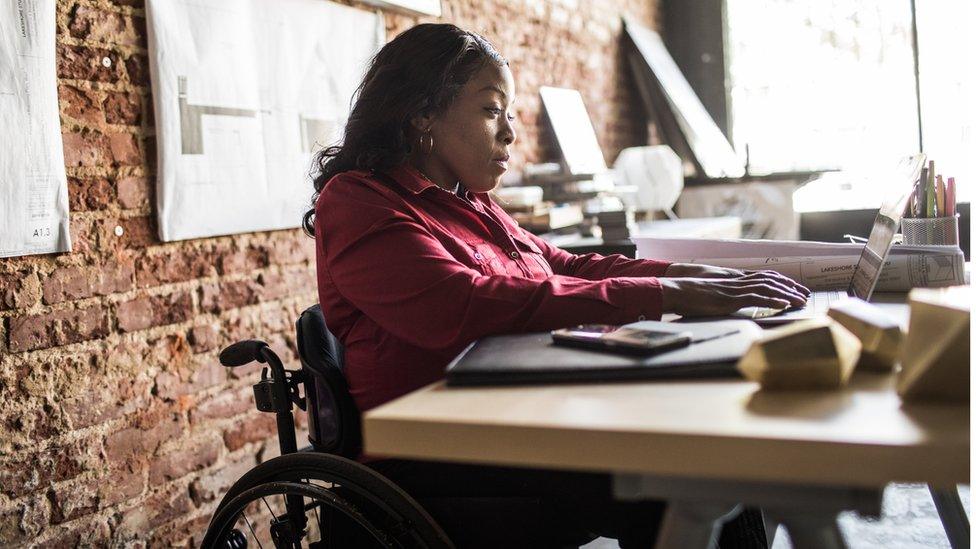
The Leonard Cheshire charity surveyed 1,170 working age disabled people and 500 employers. It found two in five hiring managers saw "being able to support" disabled people properly during the coronavirus pandemic as a barrier.
Meanwhile, a fifth of employers said they were less likely to hire a disabled candidate overall.
Of the 7.7 million disabled people of working age in the UK, 53.6% are currently in work, in comparison with 81.7% of those who are not disabled, according to the Office for National Statistics., external
More than half (57%) of disabled 18-24 year olds surveyed by the charity said they felt that the pandemic had affected their ability to work. The majority also felt that it had hit their future earnings potential.
Leonard Cheshire described its findings as "stark".
"But we should see them not as gloomy forecasts for policymakers but as motivators for immediate, wide-ranging action," said its head of policy, Gemma Hope.
The charity is calling on the government to extend the furlough scheme for working people who are shielding, and to make statutory sick pay available from the first day of employment.
'At the sharp end'
In September, charity Scope also said that disabled people had been "hardest-hit" by the pandemic.
In an open letter, external, addressed to Prime Minister Boris Johnson, it pointed to "a looming recession and disabled people at the sharp end of poverty".
Scope called for the government to prioritise the publication of the National Disability Strategy, ensuring "it provides a clear plan to mitigate existing inequalities the pandemic has further magnified".
The government committed to publishing the strategy - which aims to improve disabled people's access to opportunities - in the last Queen's Speech.
"We understand this has been a very challenging time for many disabled people and we remain committed to supporting their safe return to work," a government spokesperson said.
"We are working to support and protect disabled people with one of the most comprehensive economic responses in the world.
"In addition, we have boosted welfare support by £9.3bn to help those who need it most."
- Published17 September 2020
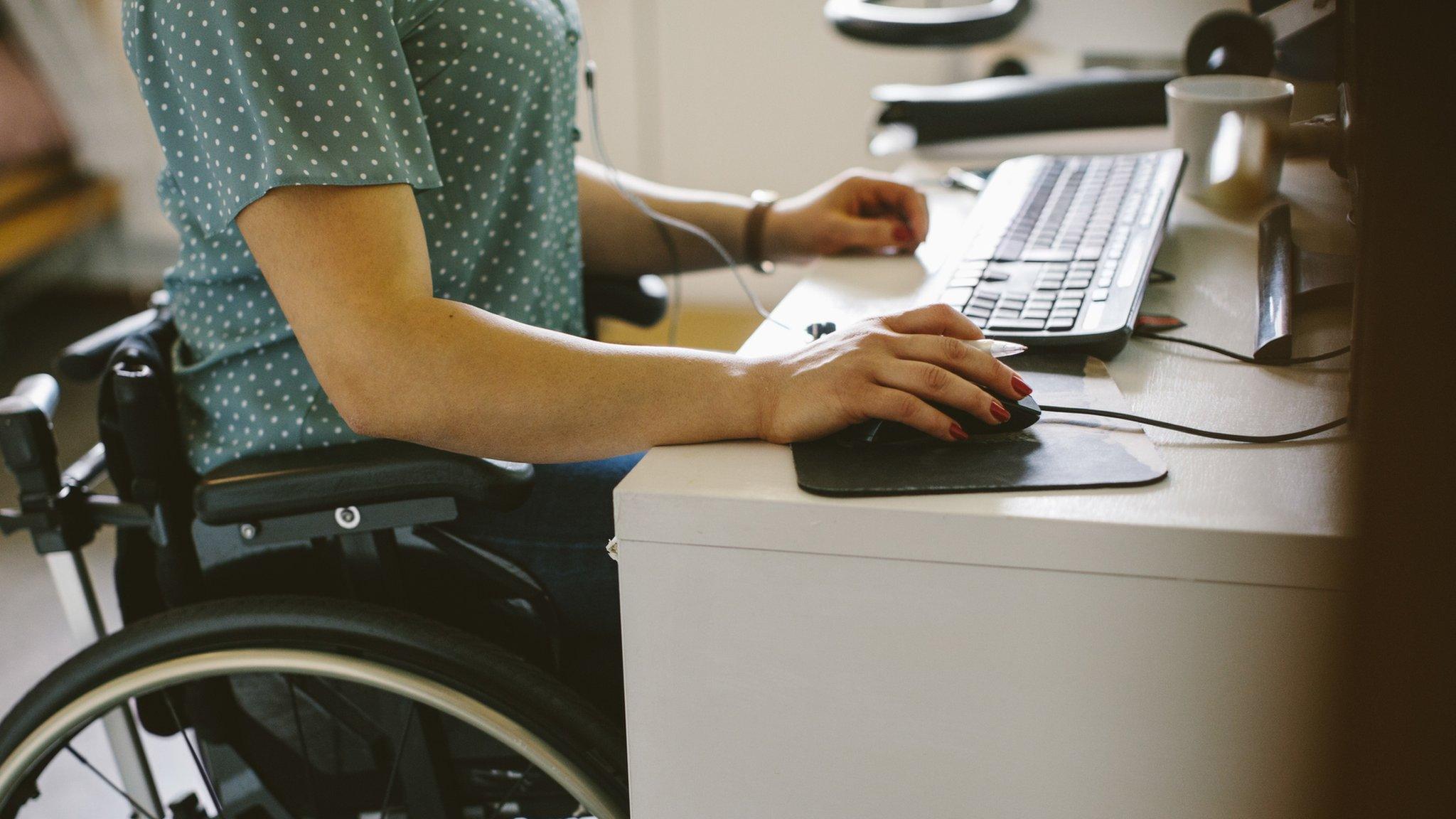
- Published18 September 2020
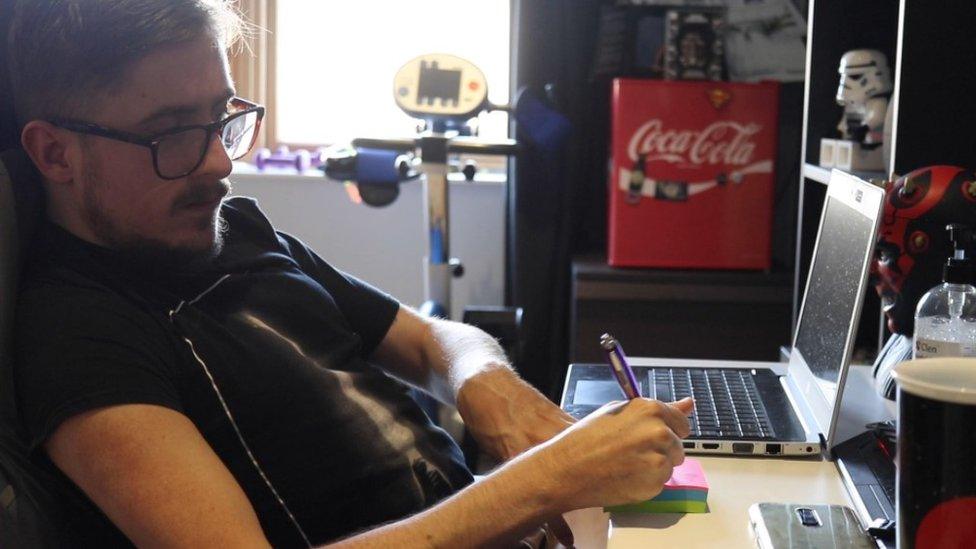
- Published30 August 2020
